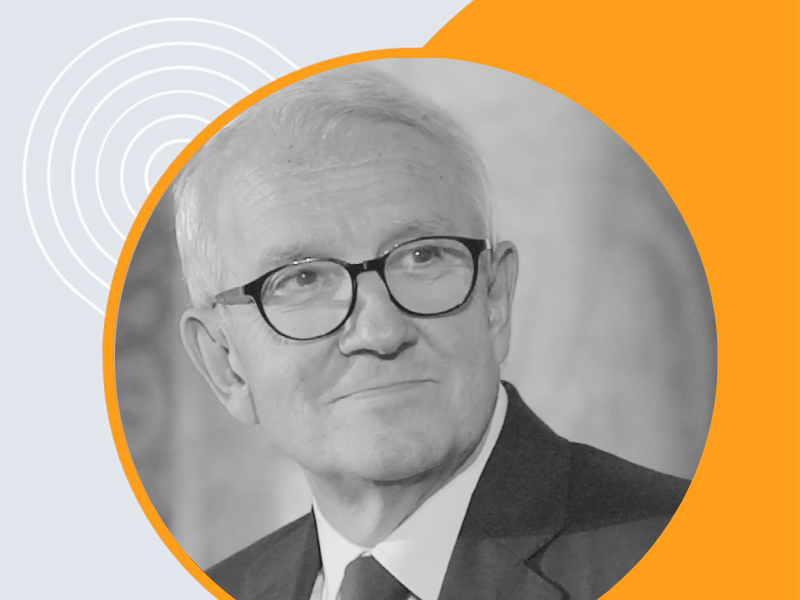Giovanni Costa, Università degli Studi di Padova
Curated by VSM Alumni, July 2025

Shaping conscious managers in a changing world
Giovanni Costa, Professor Emeritus of Business Strategy and Organization at the University of Padua, is one of the most influential figures in Italy’s economic and managerial culture. Over a long academic career, he has taught at SDA Bocconi, CUOA Vicenza, ESSEC Business School in Paris, and Ca’ Foscari University of Venice, always combining teaching, research, and engagement with businesses. Through this work, he has significantly contributed to the development of strategic thinking in Italy and to the education of generations of entrepreneurs and managers.
He served as Vice-Rector for Relations with Businesses and Financial Institutions at the University of Padua and has held important governance roles, including Vice President of the Management Board of Intesa Sanpaolo and President of the Cassa di Risparmio del Veneto.
A member of prestigious academic institutions such as the Galileiana and Olimpica Academies, and an honorary member of AIDEA (the Italian Academy of Management), he is also a columnist for Corriere del Veneto, the regional edition of Corriere della Sera. Professor Costa was one of the key figures behind the founding of the Business and Management program in Venice, which today continues to evolve through the Venice School of Management.
In this interview, he revisits the origins of that pioneering vision, reflects on the evolution of managerial skills, and offers a clear and inspired perspective on the future of management education.
Professor, you played a fundamental role in establishing the Business and Management program in Venice. Can you tell us how this project came to life and what vision guided it?
The Venetian project was strongly supported by Pasquale Saraceno (1903–1991), who, despite coming from a background tied to large enterprises, recognized the need to create a school dedicated to managing the emerging miracle of small and medium-sized enterprises in the Northeast of Italy. It was a technically ambitious initiative, yet one that also paid close attention to the cultural dimension. Saraceno, for instance, insisted that half of the courses offered should be non-technical in nature. That spirit grew over the years, influencing both operational practices and theoretical reflection.
Traditionally, in the Faculties of Economics and Commerce, business studies were largely centered around accounting, which formed the core of the chartered accountant profession. However, the remarkable entrepreneurial development that emerged in Italy after World War II - alongside the growing international openness of our economy - inspired the group of young scholars around Saraceno to explore alternative approaches and tools that could integrate the financial-economic dimension with the managerial one. The challenge was to rapidly assimilate the North American experience and adapt it to the unique characteristics of Italy’s entrepreneurial fabric, all while responding to the powerful push for change coming from younger generations.
The vision of the Venetian school can be summarized as follows:
- the theoretical and practical centrality of the firm and the entrepreneur;
- the recognition of the active role institutions must play to ensure the proper functioning of the market and to correct its distortions;
- a pluralistic theoretical approach that avoids falling into mere eclecticism;
- attention to the diversity of stakeholders involved in the life of an enterprise;
- the importance of professional management in rationalizing business decisions;
- a constant focus on national systems and their aggregations in generating competitive advantage for firms and countries.
In a constantly evolving academic and business world, what skills do you believe are essential for today’s management students?
In a world marked by continuous change, it is not the specific technical solutions that will endure, but the method used to approach problems. And the method that should define good management is interdisciplinary. Technical skills are now taken for granted. What makes the real difference are meta-skills - the ability to regenerate one’s competencies and develop new solutions to new challenges.
What challenges and opportunities do you see today for a School of Management like ours, tasked with preparing future leaders in an increasingly complex global context?
A School of Management located in a city open to international influences, rich in history, values, and beauty - and embedded in a region that acts as an open-air laboratory for innovation and entrepreneurship -is ideally positioned to speak to the world. It simply needs to choose to do so, with determination.
Throughout your academic journey, you’ve combined teaching, research, and engagement with businesses. How important do you believe this balance remains in management education today?
In management education - both then and now - I’ve always been guided by the belief that good research leads to good teaching, and that both are meaningful only if they contribute to the growth and evolution of businesses.
If you could give one piece of advice to current students and recent graduates of VSM, what would it be?
Be ready to embrace specialization without rigidity. Be flexible, able to move quickly and reconfigure your skills. Stay open to different cultures and perspectives, willing to learn from others and to challenge the primacy of your own views. Prepare to leverage technological change and recurring crises as opportunities to rethink management models, revisit tools, and interpret new roles.
Is there a memory or project from your time at what is now the Venice School of Management that you are particularly proud of?
Among many cherished memories, one that stands out is the initiative - promoted by our Department - that led to the awarding of honorary degrees in Business Administration to Luciano Benetton and Leonardo Del Vecchio in 1995. Both were first-generation entrepreneurs who built, from scratch, two companies studied and admired around the world.
With clarity, depth, and a mindset always open to change, Giovanni Costa reminds us that management education must go beyond technical knowledge. It should be grounded in a dynamic balance between culture, enterprise, context, and method.
In an era defined by rapid and ongoing transformation, his insights offer a powerful invitation to shape leaders who combine critical thinking with practical vision, solid skills with adaptive capacity, local roots with global openness. A vital lesson for anyone walking the halls of the Venice School of Management today - ready to make their mark on the world.

